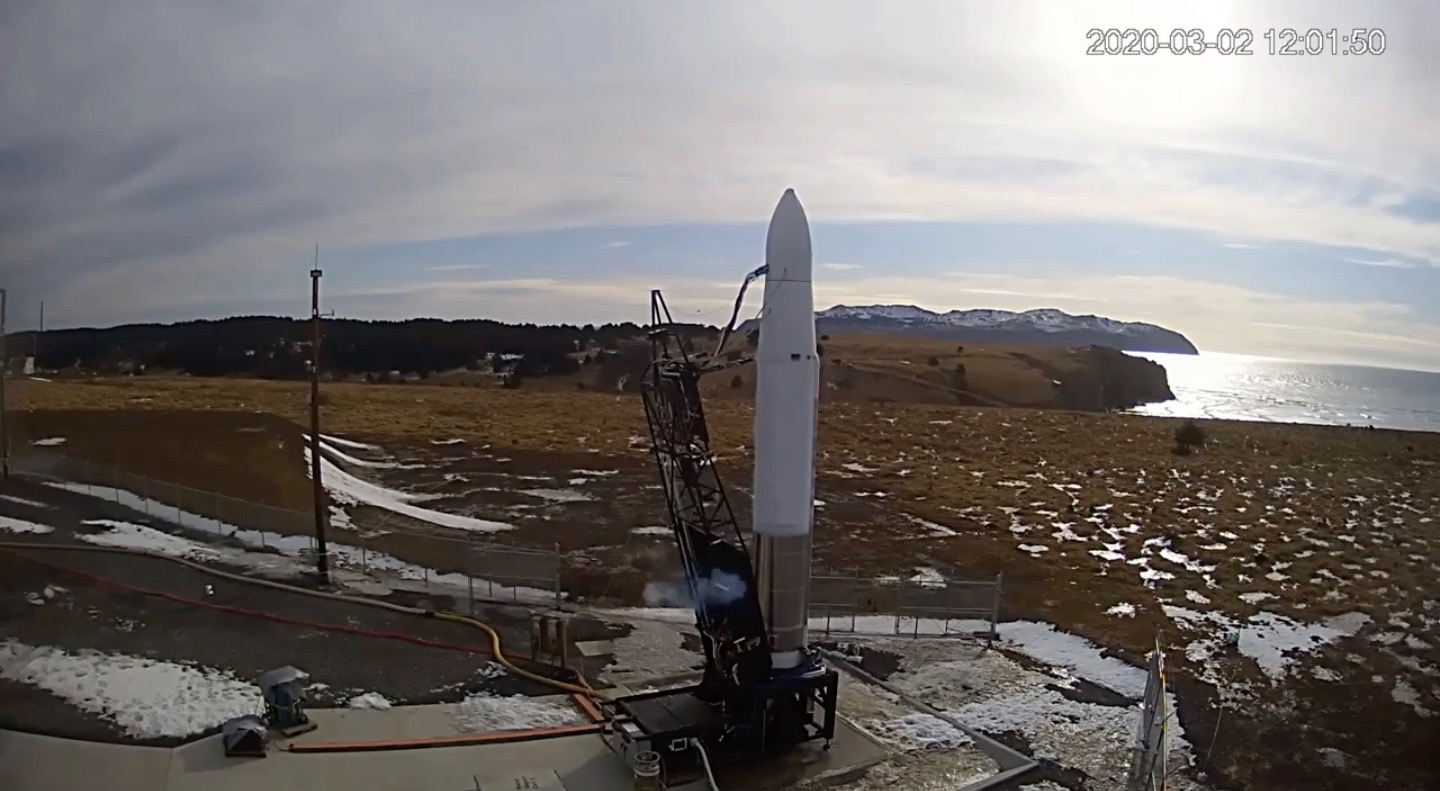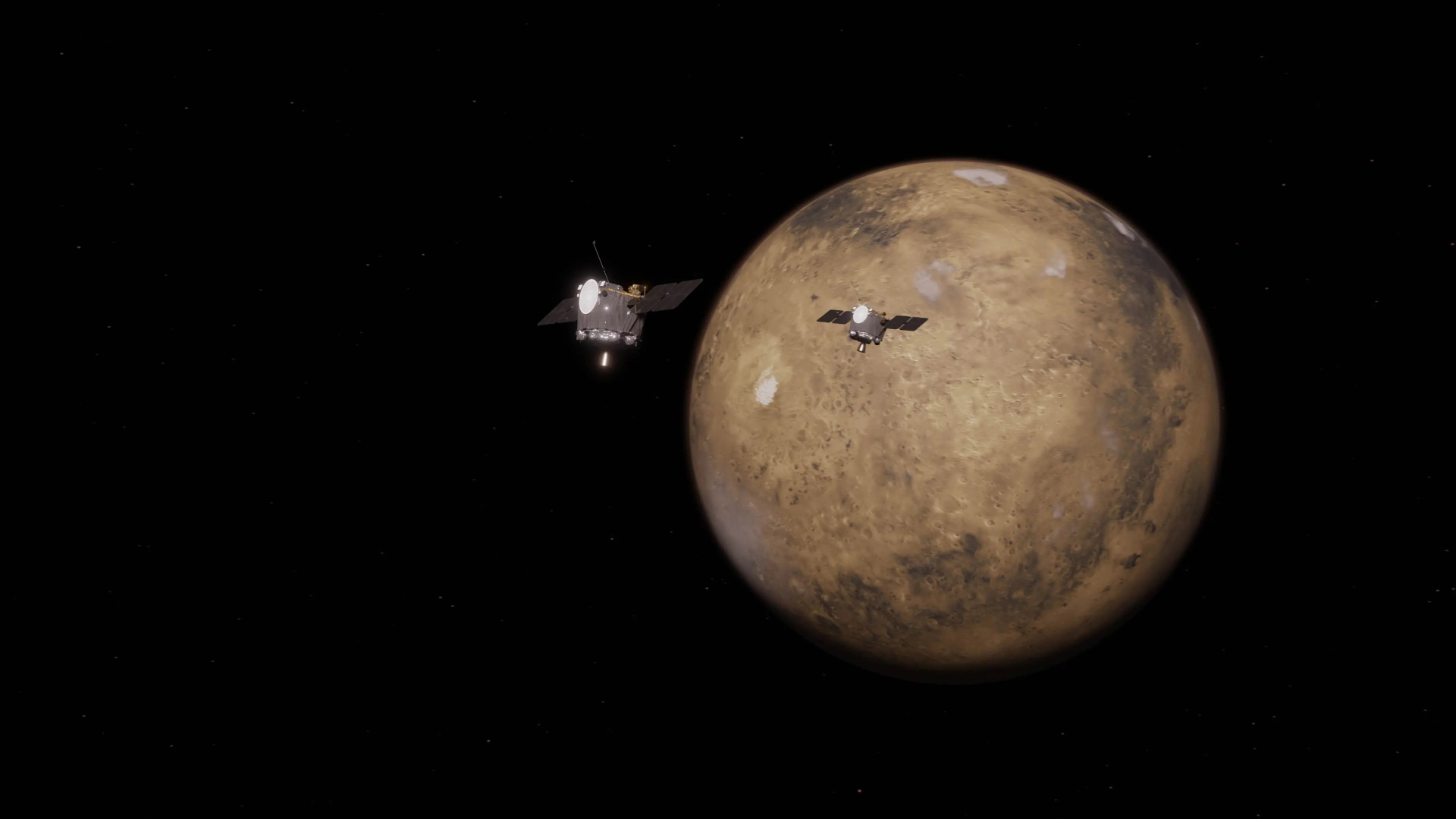Astra aiming for 1st orbital launch in early August

The spaceflight startup Astra plans to reach orbit for the first time in early August.
On Monday (July 20), the California-based company announced that its 38-foot-tall (11.6 meters) Rocket 3.1 is scheduled to launch from the Pacific Spaceport Complex on Alaska's Kodiak Island during a six-day window that opens Aug. 2.
The rocket journeyed to Kodiak last week after performing two static-fire tests at Astra's California facilities, company representatives said on Twitter. (Static fires test a rocket's engines while the vehicle is tethered to the ground.)
Astra had originally aimed to get its orbital wings nearly five months ago. Rocket 3.1's predecessor, Rocket 3.0, was poised to lift off from Kodiak on March 2 on a mission that would have delivered four payloads to orbit and netted the company $2 million.
Related: The history of rockets
Our incredible team got together for one last photo with Rocket 3.1 before it headed up to Kodiak last week!We're excited to announce that our 6-day launch window starts on August 2nd and is open from 12:30-4pm PT each day! #sendit pic.twitter.com/Ju6nmQ0usNJuly 20, 2020
The money would have come from the U.S. Defense Advanced Projects Research Agency (DARPA), which held a two-part competition called DARPA Launch Challenge to encourage the development of private rockets that can launch small payloads efficiently and on short notice.
It wasn't to be, however. Engineers noticed some potentially problematic rocket data just before liftoff, Rocket 3.0 stayed on the ground and the prize money went unclaimed. (March 2 was the final day for Astra to ace the competition's first leg.)
Breaking space news, the latest updates on rocket launches, skywatching events and more!
The two-stage Rocket 3.0 was damaged in late March, during preparations for a liftoff unaffiliated with the DARPA Launch Challenge. So the company's first orbital attempt falls to Rocket 3.1.
There's no guarantee that this launch will work, of course. In the leadup to the DARPA Launch Challenge attempt, Astra CEO Chris Kemp stressed that orbital rockets' debut missions are usually unsuccessful.
"Success for this flight means we accomplish enough to make orbit within three flights, which we have defined as at least achieving a nominal first-stage burn," Astra representatives said via Twitter last month, referring to the coming launch attempt.
The company has not announced which payloads, if any, will fly atop Rocket 3.1 on the upcoming mission.
Mike Wall is the author of "Out There" (Grand Central Publishing, 2018; illustrated by Karl Tate), a book about the search for alien life. Follow him on Twitter @michaeldwall. Follow us on Twitter @Spacedotcom or Facebook.

Michael Wall is a Senior Space Writer with Space.com and joined the team in 2010. He primarily covers exoplanets, spaceflight and military space, but has been known to dabble in the space art beat. His book about the search for alien life, "Out There," was published on Nov. 13, 2018. Before becoming a science writer, Michael worked as a herpetologist and wildlife biologist. He has a Ph.D. in evolutionary biology from the University of Sydney, Australia, a bachelor's degree from the University of Arizona, and a graduate certificate in science writing from the University of California, Santa Cruz. To find out what his latest project is, you can follow Michael on Twitter.
